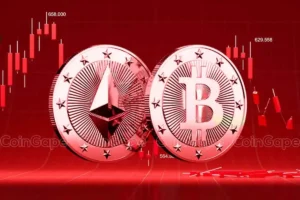Decentralized exchanges (DEXs) are currently experiencing their highest-ever trading volume ratio compared to centralized exchanges (CEXs), according to Uniswap founder Hayden Adams. Adams highlighted this achievement on July 29, noting that “DEX market share is at an all-time high relative to CEX.” This trend is supported by data from The Block showing that DEX trading volumes have been on the rise since the beginning of the year. This increase in DEX activity has coincided with a bullish market fueled by the SEC’s approval of spot ETFs for major digital assets like Bitcoin and Ethereum, as well as growing institutional and political interest in the crypto market.
CoinGecko’s second-quarter report further confirms the uptrend in DEX trading volumes, with a significant shift in crypto trading patterns. The data shows a decline in spot trading volume on centralized exchanges, while DEXs have seen a notable increase in trading activity. During the second quarter, trading volume on the top 10 DEXs surged by 15.7% from the previous quarter, reaching $370.7 billion. Uniswap maintained its position as the leading DEX, capturing 48% of the market share by the end of June. New players like Thruster and Aerodrome also saw significant growth, challenging established DEXs in the lower tier of the market.
In contrast, centralized exchanges experienced a 12.2% decline in spot trading volume during the same period, totaling $3.4 trillion for the quarter. Despite this decrease, Binance continued to dominate the market with a 45% share, while other exchanges such as Bybit, Gate.io, Bitget, and HTX also performed well. The rise in DEX trading volumes can be attributed to factors like the popularity of memecoins and a surge in airdrops during this period, driving increased activity on decentralized platforms.
The growth in DEX activity reflects a broader trend in the crypto market, with decentralized exchanges gaining traction amidst a shifting landscape in trading preferences. This trend is supported by the increasing institutional and political interest in the crypto market, particularly as the US election approaches. With DEXs now commanding a larger share of the trading volume compared to CEXs, it will be interesting to see how this trend evolves in the coming months and what implications it may have for the overall crypto ecosystem. As decentralized finance (DeFi) continues to expand and innovate, DEXs are likely to play a significant role in shaping the future of crypto trading.

















